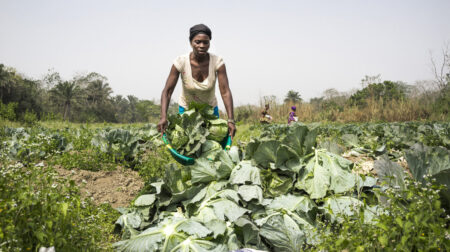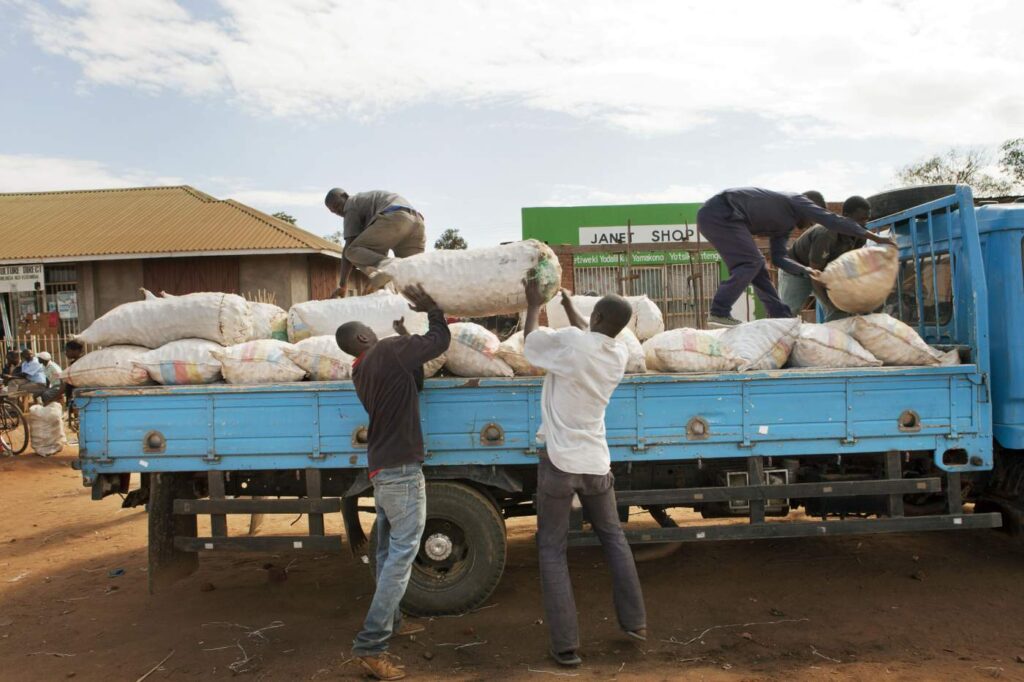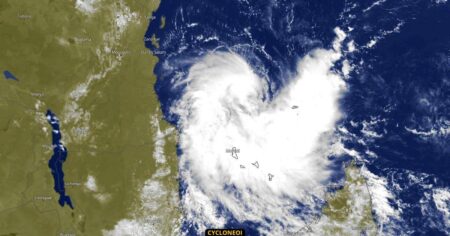- Africa’s new dawn: the rising role of digital and AI in agriculture
- Can Dangote Refinery Transform Africa Energy Ambition
- Gallup Survey: 80 per cent of Kenyan Workers Are Disengaged and Seek New Opportunities
- Madagascar Man Freed from 5KG Tumor After 15-Year Struggle
- How women in Africa are perceived and treated
- Sugar consumption in Kenya to Increase to 1.23 Million Tonnes
- Can Somalia and Turkey Oil deal Bring Change in Somaliland
- Remittances to Kenya dropped to $371.6 million in June, marking a six month low
Browsing: Tanzania
- Ashden says these trailblasers, armed with groundbreaking technologies and innovative solutions, stand at the forefront of the battle against global warming.
- Climate charity Ashden has called for financiers, investors, and policymakers worldwide to step up support for proven climate solutions that hold the keys to our sustainable future.
- The Ashden Awards recognise inclusive solutions that deliver a wide range of benefits, from new jobs to community resilience and lowering emissions.
In an era marked by increasing environmental crises and the relentless march of climate change, the call for innovation has never been more urgent. Climate charity Ashden has called for financiers, investors, and policymakers around the world to step up support for proven climate solutions that hold the keys to our sustainable future.
These trailblasers, armed with groundbreaking technologies and innovative solutions, stand at the forefront of the battle against global warming.
Speaking at the 2024 Ashden Awards ceremony, Ashden …
- Tanzania has embarked on a plan to set up a 22-storey building in Kenya’s capital, Nairobi, to house its embassy staff.
- Tanzania Towers in Nairobi is part of a grand plan to set up embassy buildings in Kigali, Kinshasa, London, New York, and Lusaka cities.
- Once complete, Tanzania projects to earn about $13.75 million (TZS36 billion) per year from real estate investments in foreign capitals.
Stung by rising costs of paying rent in foreign capitals for hundreds of chancery staff and the pressing need to shore up foreign currency receipts, authorities in Tanzania have embarked on a plan to set up a 22-storey building in Kenya’s capital, Nairobi.
The new building, which is set to add more floor space in Nairobi’s business zone, Upperhill area, is an investment by NSSF as well as Tanzania’s Ministry of Foreign Affairs.
The Tanzania Towers, containing residences and offices, and adding beauty to the …
- The UAE, Saudi Arabia, and Qatar, have poured billions into developing airports, airlines, and seaports across Eastern Africa in the last 10 years.
- In the latest development, UAE’s Sharjah Chamber of Commerce and Industry is set to build a new international airport just outside Kidepo National Park, in Uganda.
- These investments are transforming the region into a pivotal stopping ground for global trade, tourism, and travel.
The economic ties between the Gulf Cooperation Council (GCC) countries and Eastern Africa have deepened significantly over the past 10 years, driven by strategic investments in key infrastructure.
The Gulf nations, notably the United Arab Emirates (UAE), Saudi Arabia, and Qatar, have poured billions into developing airports, airlines, and seaports across Eastern Africa.
These investments are transforming the region into a pivotal stopping ground for global trade and travel, enhancing connectivity, and fostering economic growth.
Eastern Africa airports and airlines enhancing connectivity
The UAE …
- Bolt, TRÍ, and Watu have launched a pilot program in Tanzania to introduce electric Bajajis, aiming to enhance sustainable urban transportation and improve the economic well-being of drivers.
- This initiative reduces operational costs significantly, boosts driver earnings, and aligns with Tanzania’s green mobility efforts.
- The program includes comprehensive support and training for drivers, with plans for future expansion to foster broader adoption of eco-friendly vehicles.
In a move that is set to revolutionize Tanzania’s urban transportation, Bolt, TRÍ, and Watu Africa have joined forces to launch a pilot program featuring electric Bajajis. This collaboration not only promises to enhance sustainable mobility but also aims to improve the economic well-being of Tanzanian drivers.
As a leading ride-hailing platform, Bolt integrates electric Bajajis into its services, allowing drivers to seamlessly participate in this innovative program. This integration enhances operational efficiency and provides drivers with access to cost-effective vehicles, significantly increasing …
- Imaginative agriculture concepts are essential to sustainable food production
- Women and youth are the most affected by climate change’s effects on agriculture
- Canada commits 20 million dollars to support smart agriculture in Tanzania
Smart agriculture is the only sustainable solution to food security and economic growth through commercial agriculture in Tanzania.
However, in Tanzania, economic losses from climate change impacts on agriculture are estimated to exceed $200 million yearly.
“The adoption of climate-smart agriculture (CSA) practices gives an opportunity to minimise such losses, create resilience in the agriculture sector, maximise productivity and farmer incomes, and contribute to climate change mitigation,” notes the World Bank.
Further still, if Tanzania is to adopt climate-smart agriculture, its focus must be on the livestock sub-sector, which is estimated to contribute the most to greenhouse gas emissions.
According to the World Bank, an increased focus on developing livestock-based programs is needed to support the country’s …
- Under a new COMESA programme, farmers in the five East African countries are expected to access quality seeds, and training on how to improve production and distribution.
- The five-year programme is expected to help the countries cut post-harvest losses in horticulture to 40 per cent or lower, from highs of 60 per cent, for instance in Kenya.
- Agriculture is estimated to contribute on average 27% of the gross domestic product (GDP) in the EAC and accounts for the highest share of employment not only in the region but across Africa.
Agriculture is the backbone of nearly all East Africa region’s economies and the main economic activity for more than 70 per cent of the population. It is estimated to contribute on average 27 per cent of the gross domestic product (GDP) in the EAC and accounts for the highest share of employment not only in the region, but the African.…
- China has launched a truck assembly plant in Tanzania.
- At the same time, President Samia has ordered long-stalled coal and iron mines to be revived.
- Over 1000 persons to be relocated to establish coal and iron mines .
Tanzania has inaugurated a new truck assembly plant to be run by a Chinese company as the country pushes its industrialization agenda. This truck assembly plant has raised talks of power and metal ore supply for companies, and two key mines have resurfaced, the Mchuchuma coal and Liganga iron ore mines.
Known as the Saturn Corporation Limited Company, the truck assembly plant has this May been inaugurated by the country’s President Samia Suluhu Hassan.
Located in Kigamboni District of the coastal commercial port city of Dar es Salaam, the plant is run by China’s SinoTruk International. The company is renowned for trucks, tippers, tankers and spare parts under the premier brand …
- Sustainable Trade in Tanzania seeks to integrate the strengths of private sectors and civil society organisations to promote green growth.
- The plan seeks to grow trade practices that are both inclusive and environmentally sustainable.
- The project seeks to improve trade resilience to climate change by advocating for sustainable trade practices.
The Foundation for Civil Society (FCS) and TradeMark Africa have sealed a grant agreement to launch a $ 900,000 Private Sector and CSOs project to drive sustainable Sustainable Trade in Tanzania and inclusive business practices, addressing the significant systemic challenges in Tanzania’s trade sector.
Funded by the Foreign, Commonwealth & Development Office (FCDO), Ireland, and Norway, the TZS2.3 billion ($900,000), the project seeks to integrate the strengths of private sectors and civil society organisations to promote green economic growth.
Many women in Tanzania remain in the informal trading sector, facing barriers such as limited access to finance and inadequate training …
- In Africa, a staggering 1.2 billion people lack access to clean cooking facilities.
- Lack of clean cooking facilities is one of the main causes of deforestation in Africa.
- AfDB funding is a major step along the road to saving the lives of 600,000 mainly women and children each year.
The African Development Bank Group (AfDB) has pledged $2 billion over the next decade towards clean cooking initiatives in Africa, marking a huge stride in the effort to save the lives of 600,000 people, predominantly women and children, each year. This commitment aims to address the health hazards associated with traditional cooking methods that rely on charcoal, wood, and biomass, which contribute to severe respiratory illnesses and environmental degradation.
At a summit on Clean Cooking in Africa, held in Paris, AfDB President Dr. Akinwumi Adesina announced that the Bank would allocate 20 per cent of its energy project financing to promoting …
- Kenya and Tanzania, already reeling from nature’s fury, now confront the looming threat of Cyclone Hidaya.
- Cyclone Hidaya’s trajectory places the eastern coast of Tanzania squarely in its crosshairs as neighbouring Kenya braces for floods.
- The relentless deluge gripping East Africa originates in the El Nino weather pattern.
Millions of people in Tanzania and Kenya are on edge as Cyclone Hidaya, a formidable tempest, barrels toward the region, exacerbating the havoc wrought by ongoing heavy downpours and catastrophic floods that have claimed hundreds of lives across East Africa.
Kenya and Tanzania, already reeling from nature’s fury, now confront the looming threat of a cyclone poised to unleash further devastation, with forecasts predicting a grim landfall later on Friday, May 3rd.
Cyclone Hidaya’s trajectory currently places the eastern coast of Tanzania squarely in its crosshairs, with fears mounting over its potential impact on neighbouring Kenya. As meteorological projections paint a …














